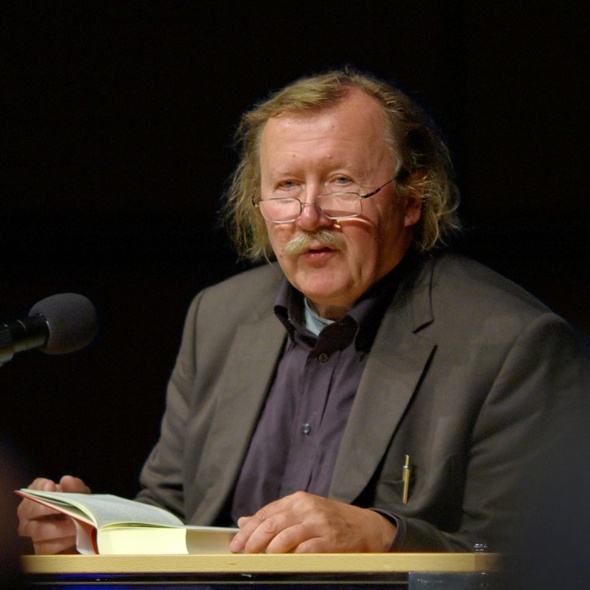The Berlin national daily Die Welt has published Robert Pogue Harrison‘s recent Entitled Opinions radio/podcast interview with philosopher Peter Sloterdijk in time for the holidays here. You can listen to the interview (recorded in English) over at the Los Angeles Review of Books here.
It’s kind of a Christmastime message, in a backhanded sort of way.
It begins:
Robert Harrison: I have just finished reading your splendid little book called Nietzsche Apostle, which was published in English in 2013 but first came out in Germany in the year 2000, on the hundredth anniversary of Nietzsche‘s death. What exactly you mean when you speak of Nietzsche as an apostle?
Peter Sloterdijk: he answer is quite simple. Nietzsche had very high ambitions, and he asked an elementary question, “Who was the most fateful person in the history of Western mankind?” And the answer he gave by himself, to himself, was that this person was obviously Saint Paul, whom he took for the real founder of Christianity – only apostle Saint Paul, who invented the apostolic role as such.
Saint Paul was the most fateful person in history, according to Nietzsche. If it were possible to undo the effects that Saint Paul had created, it would change the course of history. According to Nietzsche, Saint Paul brought genius into resentment. He elevated resentment to a level from which it could became a gospel.
Harrison: Do you believe that the figure of Jesus is secondary, in Nietzsche’s mind, to Paul?
Sloterdijk: In a certain way, yes. It’s absolutely not clear if Jesus had a universalist message. Jesus seems to be an elitist. He talks to those who can understand. Eventually there’s an encounter between the Gospels and the evangelical messages and Greek philosophy. The meeting began in Paul’s writings and were taken up in the fourth Gospel, which was written later. This meeting between Hellenism and the unruly Jewish method made possible what we call Christianity.
Harrison: Of course, the word gospel means “good news” or “glad tidings.” You make a point of Nietzsche’s claim that he wrote the fifth gospel in his book Zarathustra. Can you speak a little bit about this fifth gospel and the paradoxes at the heart of it? You claim Nietzsche made a great effort to convince himself of the “good news” and to continue believing that he was actually a bearer of good news. He was tormented by the fact that before you get to any good news, there’s terrible news – dreadful, awful news that he has to bring to humankind.
Sloterdijk: First of all, the category of “news” is problematic because news, in modern terms, is actuality, whereas for those who used it as a term ἄγγελμα in former times simply meant “message,” or in German, botschaft. The ἄγγελος is just a messenger. That is important. The connection with time is not yet so clear.
Read the rest here – but if you don’t know German, you’ll have to have a go with Google Translate. Or wait for English publication.
Tags: Friedrich Nietzsche, Paul of Tarsus, Peter Sloterdijk, Robert Pogue Harrison



